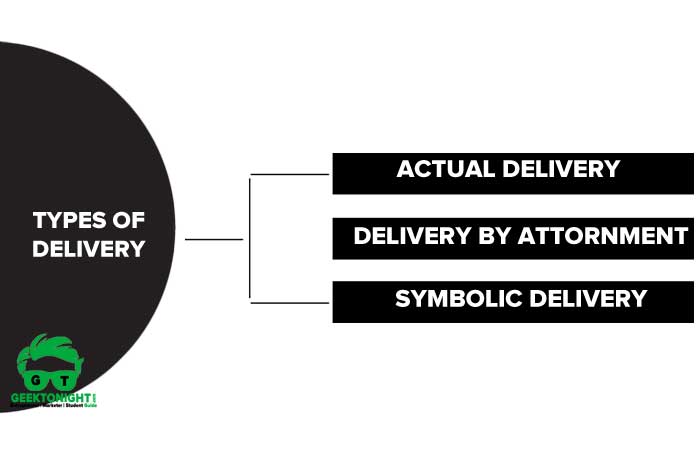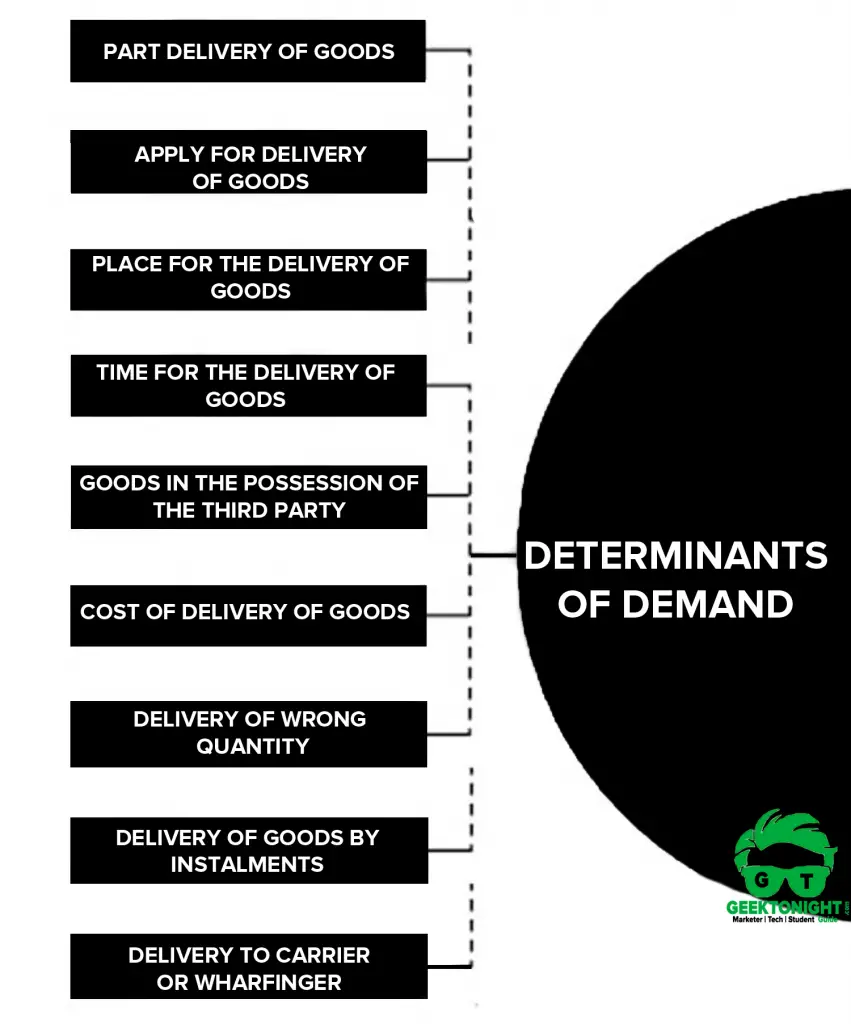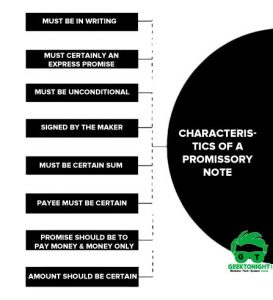Performance of a Contract
It is the duty of the seller to deliver the goods and of the buyer to accept and pay for them, in accordance with the terms of the contract of sale.
– Sec. 31, The Sale of Goods Act, 1930
Table of Content
- 1 Performance of a Contract
- 2 Delivery of Goods
- 3 Types of Delivery
- 4 Rules for Delivery of Goods
- 4.1 Part delivery of goods
- 4.2 Buyer to apply for delivery of goods
- 4.3 Place for the delivery of goods
- 4.4 Time of delivery
- 4.5 Goods in the possession of the third party
- 4.6 Cost of delivery of goods
- 4.7 Delivery of wrong quantity of goods
- 4.8 Delivery of goods by installments
- 4.9 Delivery to carrier or wharfinger
- 5 Business Law Notes
- 6 Business Law Book References
The performance of a contract is a simple transaction where the seller delivers the goods and the buyer pays. If there is something more complex, then this is stated in the contract as special terms.
Delivery means voluntary transfer of possession of goods from one person to another [sec. 2(2)].
- Seller: Delivers goods and receives consideration.
- Buyer: Accepts and pays for the goods.
- Terms: Contract can have terms of delivery and payment.
Delivery of Goods
The rules regarding the delivery of goods are contained in Sec. 33 to Sec. 39 of the Sale of Goods Act, which may be grouped as under:
Delivery of goods may be defined as a voluntary transfer of possession of goods from the seller to the buyer.
Types of Delivery

Actual Delivery
The goods are handed over by the seller to the buyer or to his authorized agent; it has the effect of putting the goods in the possession of the buyer: Sec. 33.
Example: Amar sold 10 tins of oil to Akbar and delivered the same to him. In this case, there is the actual delivery of oil from Amar to Akbar.
Constructive or Delivery by Attornment
A third party (bailee) who is in possession of the goods of the seller at the time of sale acknowledges to the buyer that he holds the goods on his behalf: Sec. 36(3).
Example: A sells to B 10 bags of wheat lying in C’s godown. A gives an order to C, asking him to transfer the goods to B. C assents to such order and transfer the goods in his books to B. this is delivery by attornment.
Symbolic Delivery
The goods are too bulky and unwieldy such as large machinery, where a symbolic passing of documents or keys and the like demonstrate the transfer of goods.
Rules for Delivery of Goods
- Part delivery of goods – Sec 34
- Apply for delivery of goods – Sec 35
- Place for the delivery of goods – Sec 36
- Time for the delivery of goods – Sec 36 (2)
- Goods in the possession of the third party – Sec 36 (3)
- Cost of delivery of goods – Sec 36 (5)
- Delivery of wrong quantity – Sec 34
- Delivery of goods by instalments – Sec 38
- Delivery to carrier or wharfinger– Sec 39

Part delivery of goods
Goods being delivered as part of the whole; if the part is severed from the whole then the transfer is not of the whole but only partial.
Example
(a) Whole: You buy 100 bags of cement, and you are at the moment delivered only ten—but you are the owner of the whole.
(b) Partial: You want only 100 bags of cement, but you pay only for ten and take ten; the rest of the 90 bags are not part of the sale of goods.
Buyer to apply for delivery of goods
Unless the buyer places his demand there is no sale of goods, unless there is a contract to that effect. It is a logical impossibility to supply you something that you have not asked for.
Example
(a) Suddenly there arrives a truck with 100 bags of cement to your doorstep. You only wonder who placed the order.
(b) On the other hand, if you have a contract for regular supply of 100 bags of cement at the beginning of every month then it is a standing order and you will receive it until you expressly cancel it.
Place for the delivery of goods
The place for the delivery of goods may be specified in the contract itself. And where the place is so specified, the goods must be delivered at the specified place during the business hours and on a working day.
Where there is no specific agreement as to the place of delivery, it shall be determined as per Sec. 36(1)
Time of delivery
The transfer of goods happens in time The contract of delivery has terms, e.g., forthwith, as soon as possible directly, immediately, reasonable time,* etc.
Depending on your order you get the supply of cement: as you have a particular schedule that is agreed upon.
Goods in the possession of the third party
Sometimes, at the time of sale, the goods are in the possession of a third person. In such cases, the effective delivery takes place only when such a person acknowledges to the buyer, that he holds the goods on his (buyer’s) behalf.
Cost of delivery of goods
Seller pays till it is made deliverable; buyer pays for obtaining delivery unless there is a specific agreement about delivery and reception.
Example: Your company forwards coal as an export with the agreement of Free On Board, that is, you pay until it is put on board; it implies that the buyer will pay for rest of its journey by sea or air as the case may be.
Delivery of wrong quantity of goods
Seller is liable to deliver agreed quantity.
Wrong quantity is of three kinds:
- Short delivery: quantity delivered less than what is agreed.
Example: Short delivery is when you get 50 bags of cement instead of 100. - Excess delivery: the delivered quantity overshoots the order.
Example: Excess delivery is when you get more than 100 bags of cement while your order is just for 100. - Delivery of mixed goods: apart from the goods of contracted description other types too are included in the delivery.
Example: Mixed delivery is when along with your order for conventional cement of 100 bags, you get also white cement, waterproofing cement, etc.
Delivery of goods by installments
As a matter of fact, the delivery of goods by instalments is not considered as a proper delivery and the buyer is not bound to accept the goods delivered to him by instalments unless otherwise agreed. The pattern of delivery shall be determined by the contract.
Example: If your cement supplier who supplies your total purchase of thousand bags of cement in ten instalments, and then becomes erratic in supply or sends defective goods, does not follow the agreed schedule, etc., which tantamount to a repudiation of the contract, then you may stop the instalments.
Delivery to carrier or wharfinger
The seller is authorised or obliged as per the contract to deliver goods to the carrier—surface, sea, or air transporter; there may also exist a third person— wharfinger, for the safe custody goods.
Example: Your iron ore is loaded on board of a sea carrier by the seller and is also insured for its safety. If it is lost before its boarding, the seller has the right to sue the insurance company.
Read Detailed Article: of Rules for Delivery of Goods
Business Law Notes
(Click on Topic to Read)
Business Law Book References
- Goel, P. K. (2006). “Business Law for Managers” Wiley
- Sheth, T. (2017). “Business Law” (2ed.) Pearson.
- Kuchhal. M.C. & Prakash. “Business Legislation for Management” (2ed.) Vikas Publishing.
Go On, Share article with Friends
Did we miss something in Business Law Note? Come on! Tell us what you think about our article on Performance of a Contract | Business Law in the comments section.
Business Law Notes
(Click on Topic to Read)
- What is Business Law?
- Indian Contract Act 1872
- Essential Elements of a Valid Contract
- Types of Contract
- What is Discharge of Contract?
- Performance of Contract
- Sales of Goods Act 1930
- Goods & Price: Contract of Sale
- Conditions and Warranties
- Doctrine of Caveat Emptor
- Transfer of Property
- Rights of Unpaid Seller
- Negotiable Instruments Act 1881
- Types of Negotiable Instruments
- Types of Endorsement
- What is Promissory Note?
- What is Cheque?
- What is Crossing of Cheque?
- What is Bill of Exchange?
- What is Offer?
- Limited Liability Partnership Act 2008
- Memorandum of Association
- Articles of Association
- What is Director?
- Trade Unions Act, 1926
- Industrial Disputes Act 1947
- Employee State Insurance Act 1948
- Payment of Wages Act 1936
- Payment of Bonus Act 1965
- Labour Law in India
Business Law Notes
(Click on Topic to Read)
- What is Business Law?
- Indian Contract Act 1872
- Essential Elements of a Valid Contract
- Types of Contract
- What is Discharge of Contract?
- Performance of Contract
- Sales of Goods Act 1930
- Goods & Price: Contract of Sale
- Conditions and Warranties
- Doctrine of Caveat Emptor
- Transfer of Property
- Rights of Unpaid Seller
- Negotiable Instruments Act 1881
- Types of Negotiable Instruments
- Types of Endorsement
- What is Promissory Note?
- What is Cheque?
- What is Crossing of Cheque?
- What is Bill of Exchange?
- What is Offer?
- Limited Liability Partnership Act 2008
- Memorandum of Association
- Articles of Association
- What is Director?
- Trade Unions Act, 1926
- Industrial Disputes Act 1947
- Employee State Insurance Act 1948
- Payment of Wages Act 1936
- Payment of Bonus Act 1965
- Labour Law in India





